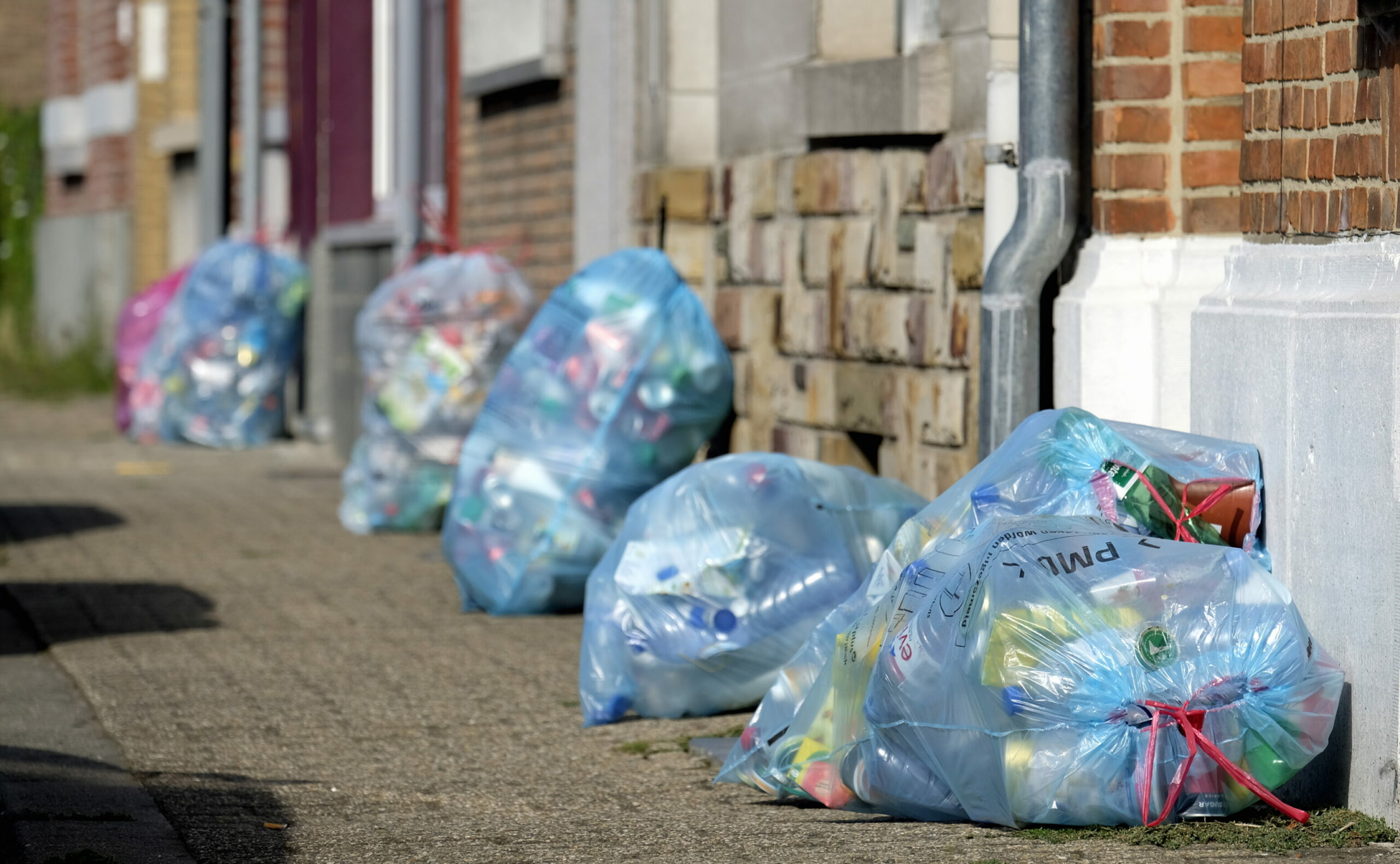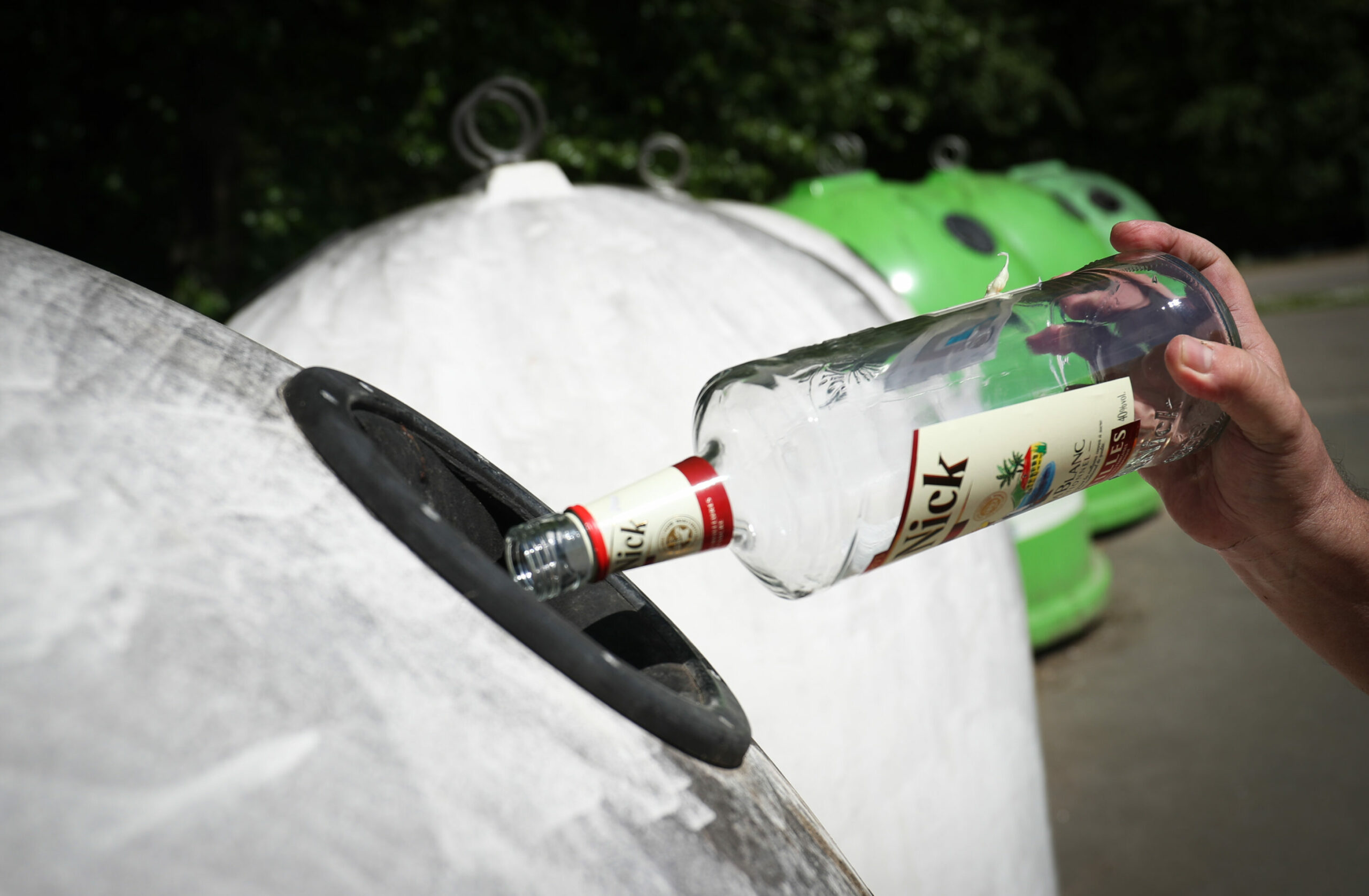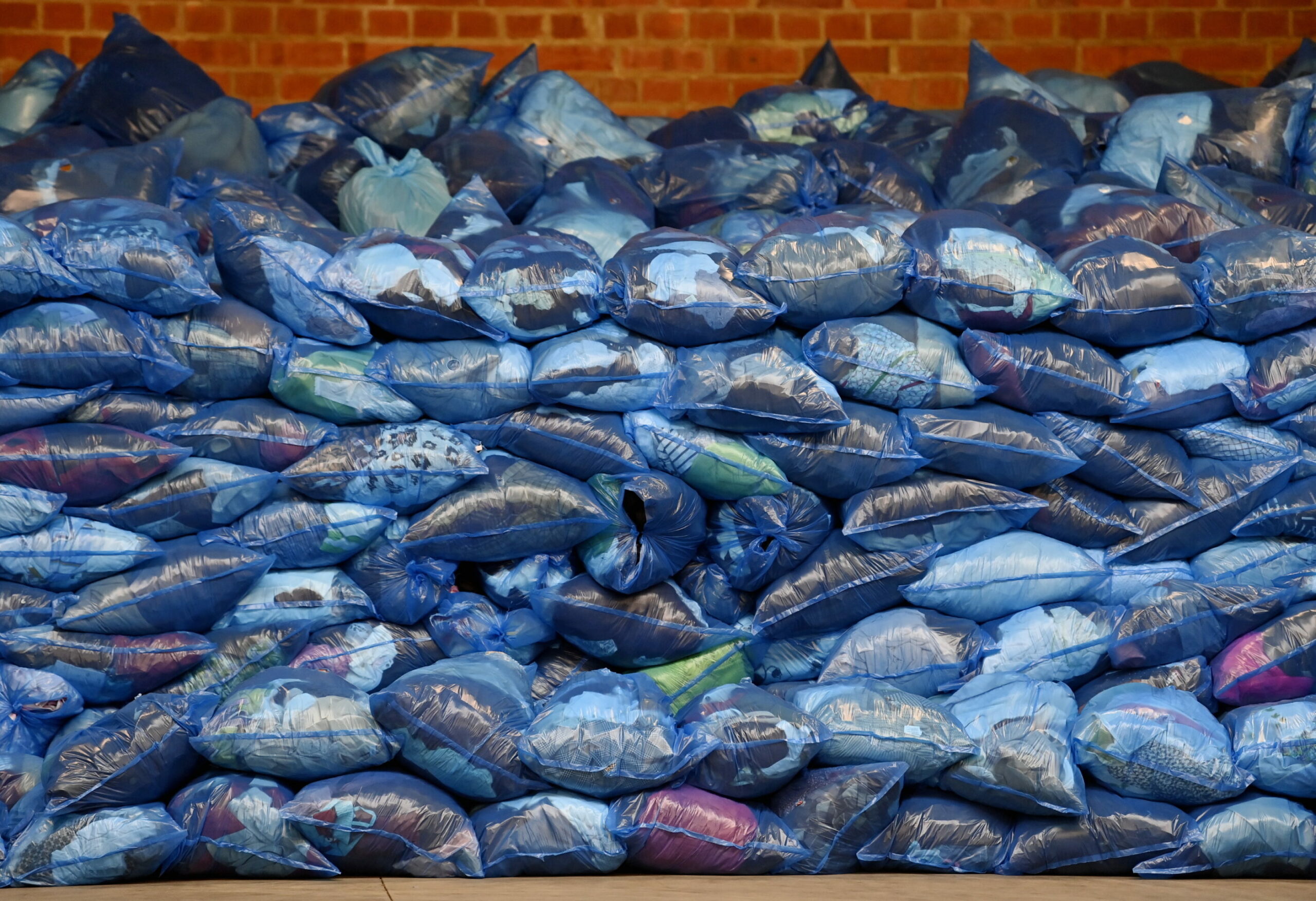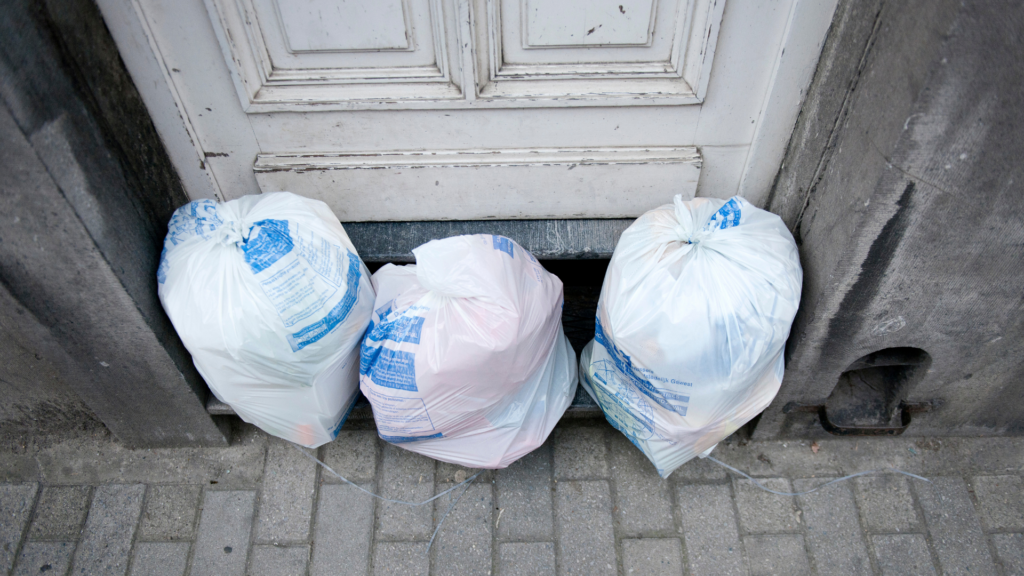Figuring out the rubbish system of a new city is often not the top priority of many newcomers. However, incorrectly disposing of your waste in Brussels can come at a high cost.
Depending on where a person comes from, the waste separation system in the capital can be complex. From finding the appropriate waste bags, to social recycling initiatives and collection schedules, The Brussels Times put together a guide on everything you need to know to avoid getting a hefty fine.
Colourful bags
Sorting waste in the capital has been compulsory since 2010. This is done mainly by placing rubbish in specific bags, which are then collected outside of your home at specific times.
The different rubbish bags, which should be branded 'Bruxelles-Propreté', can be purchased at most supermarkets, convenience shops, or DIY shops.
There are five different bags:
- White bag: This is for residual waste. Bags can have a volume between 30 to 60 litres.
- Blue bag: This is for plastic bottles, metal packaging and drink cartons. The bags range from 50 to 100 litres.
- Yellow bag: This is for cardboard and paper. The bag has a capacity of 30 litres. For this type of waste, a pile can also be placed outside for collection if it is well tied together.
- Orange bag: This is for food waste. The bags have a capacity of 30 litres.
- Green bag: This is for green or garden waste. The bag has a capacity of 60 litres.

Credit: Belga/Eric Lalmand
For bags to be collected, they should be well sealed, weigh 15kg or less, and placed in front of homes/private property. Each type of bag can only be placed outside for collection on specific days at specific times. The schedule for each area in Brussels can be consulted online. Keep in mind that on strike days, it is often recommended to not put you waste outside.
For entire apartment blocks, containers can also be used for waste collection instead of bags. This can be organised by the building manager contacting the Brussels waste management service, Bruxelles-Propreté.
Waste can also be disposed of at recycling parks or 'Recyparks'. Information about the waste each park collects, costs, and who can access it can be found online.
Glass, cooking oils, medication
In addition to the waste bags, containers, and recycling points are available for other types of waste.
Clean transparent glass can be recycled at Recyparks or a 'bottle bank'. Colourless glass should be placed in the white container while coloured glass should be put in the green container of the bottle bank. Non-transparent glass should be disposed of at a Recypark. Any lids, caps, or corks should be recycled separately.

Credit: Belga/Virginie Lefour
Household chemical waste includes cleaning products, printing products, bulbs, beauty products like hair dye, as well as automotive products. These products can be disposed of at some Recyparks or at a collection point by the local service Proxy Chimik (waste disposal is limited to 35 litres per visit).
Cooking oil can be disposed of by pouring the cold oil into an empty plastic bottle or its original packaging. The sealed container can then be dropped off at a collection point in the city.
All clothes and other textiles that are clean and dry must be disposed of at a Recypark or in textile containers in a sealed bag with a maximum of 60 litre in volume. Alternatively, items (in good condition) can also be brought to second-hand shops. Textiles that are wet and soiled must be disposed of in the white bin bags.

Credit: Belga/Eric Lalmand.
Bulky household waste is household waste that cannot be collected through plastic bags due to their weight, size, or materials. This includes electrical or electronic appliances, furniture, lamps, or items like bicycles or strollers. You can dispose of these items at a Recypark, or by returning them to the retailer (for electronics when you are purchasing the same type of device). Alternatively, you can organise a home collection with Bruxelles-Propreté by calling 800/98181.
Medical waste such as medication must be disposed of at a pharmacy. If possible, products should be returned in their original packaging. A yellow waste container, available at pharmacies, should be used to dispose of syringes.
Donations, repairs, and compost
Throughout the city, there are several shops and services which will collect items that can be reused. This not only includes clothes, but also furniture, books, and electronic appliances.
Reparation services are also available in the capital to reduce waste in Brussels. For electronic appliances and bulbs specifically, Recupel offers recycling and repair options.
For food waste, local compost initiatives are an alternative to the orange bag. An example is the compost project by Moskollectif in Saint-Gilles, which organises weekly waste deposits at the Pierre Paulus park.
Fines: What and how much?
Fines are handed out for incorrect waste management. This includes fly-tipping, incorrectly sorting out rubbish, or taking out waste bags outside the permitted schedule.
The most common fines are not separating rubbish correctly (€75), placing glass in waste bags (€100-125), and placing waste bags outside at the wrong time (€50-75). Waste-related fines can reach up to €62,500, according to Bruxelles-Propreté.

